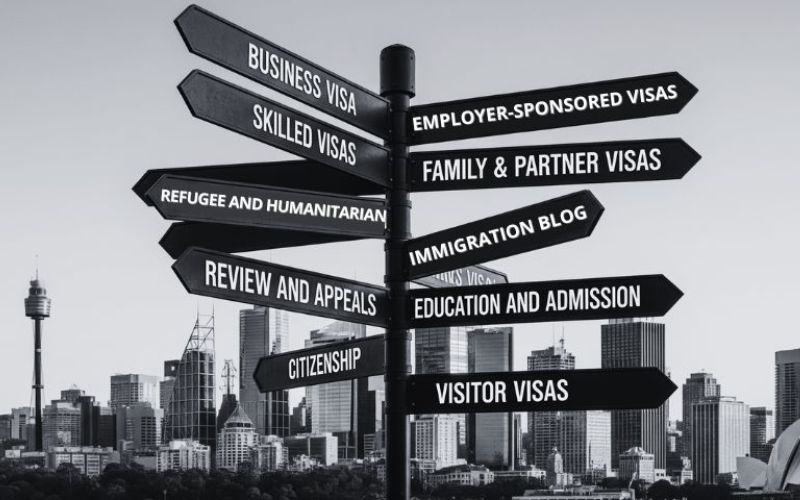Navigating Australia’s family visa program can be complex. Whether you’re hoping to bring your partner, children, or parents to Australia, there are multiple visa options, each with its own eligibility requirements, costs, and processing times.
This article provides an overview of the key Partner and Parent visa options, as well as other family visas available under Australian migration law. Please note this information is general in nature and does not constitute legal advice. Every family situation is different, so we recommend obtaining tailored migration advice before making an application.
Partner Visas
Australian citizens, permanent residents, and eligible New Zealand citizens may be able to sponsor their partner for migration to Australia.
The Main Partner Visa Pathways
- Offshore (Subclass 309/100) – for applicants outside Australia
- Onshore (Subclass 820/801) – for applicants already in Australia
Eligibility:
- Must be in a genuine and continuing spousal or de facto relationship.
- Evidence is assessed across financial, household, social, and commitment factors.
- De facto couples must usually demonstrate a 12-month relationship, unless exemptions apply (such as having a child together or registering the relationship).
Special Considerations:
- Family violence provisions protect applicants if relationships break down due to violence.
- Applicants with bridging visas or unlawful status may need to meet Schedule 3 criteria, unless compelling reasons apply.
- Health and character requirements apply, though some health waivers may be available.
Prospective Marriage Visa (Subclass 300)
For couples intending to marry in Australia, this temporary visa allows entry for up to 9 months. After marriage, applicants can transition to a partner visa.
Parent Visas
Australia offers both permanent and temporary visa pathways for parents of settled Australian citizens, permanent residents, or eligible New Zealand citizens.
Non-Contributory Parent Visas (Subclass 103 & 804)
- Low application charge, but very long queues (30+ years).
- Applicants must meet the Balance of Family Test.
- An Assurance of Support (AoS) and bond are required.
Contributory Parent Visas (Subclass 143/173 & 864/884)
- Higher visa charges.
- Processing time is shorter (approximately 12 years).
- Two-step pathways available (temporary to permanent).
Sponsored Parent (Temporary) Visa (Subclass 870)
- An alternative for parents who cannot wait decades for permanent parent visas.
- Grants a temporary stay of 3 or 5 years (renewable up to 10 years).
- Does not require the Balance of Family Test or AoS. Application requires sponsorship approval by the child in Australia.
Other Family Visas
Australia also provides pathways for other family members:
- Child visas (Subclass 101, 802, 102, 117, 837, 445) – for dependent children, adopted children, or orphan relatives.
- Carer visas (Subclass 116 & 836) – for relatives providing long-term care for an Australian family member with a medical condition.
- Aged Dependent Relative (Subclass 114 & 838) – for older relatives dependent on an Australian sponsor.
- Remaining Relative (Subclass 115 & 835) – for applicants with no close family outside Australia.
- NZ Citizen Family Relationship (Subclass 461) – for non-NZ citizens who are family members of New Zealand citizens in Australia.
Other Key Takeaways
- Partner visas provide a pathway to permanent residency but require significant evidence of a genuine relationship.
- Parent visas offer both permanent and temporary options, with trade-offs between cost and waiting times.
- Other family visas exist for children, carers, dependents, and remaining relatives, but many come with long waiting periods.
At Australian Migration Law, we understand that every family is unique. If you are considering sponsoring a partner, child, or parent, or applying for a family visa yourself, our team can guide you through the process, assess your eligibility, and prepare a strong application.
Disclaimer
The content of this article is for information purposes only. Whilst every effort has been made to ensure the accuracy of the materials contained here and incorporated by reference, this article is not intended to constitute legal or immigration advice or assistance.
No person should act on the basis of the material contained in this presentation without obtaining advice relevant to their own circumstances and without considering and taking professional advice as may be necessary.
For tailored advice and comprehensive assistance with your migration matter, contact our experienced Australian immigration lawyers today. You can reach us by email at admin@australianmigrationlaw.com.au or phone +61 407 662 682 to obtain further guidance.

